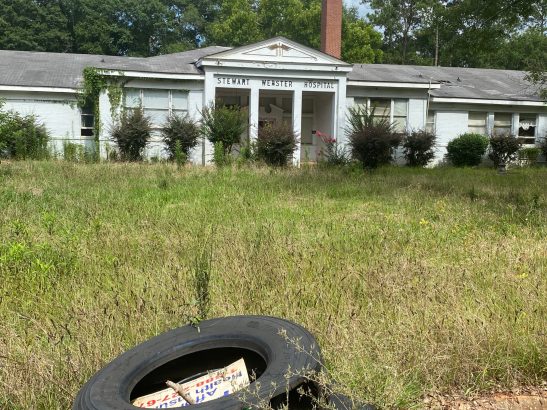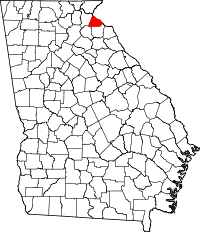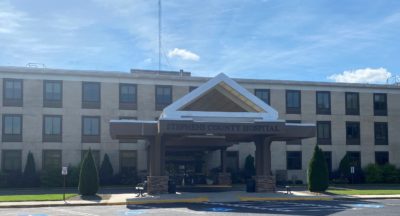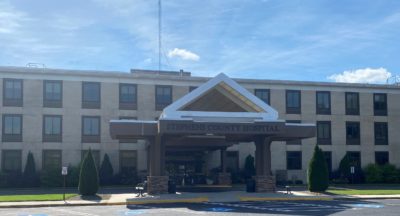This is Part 2 of a Special Report
The medical predicament that many rural communities want to avoid lies 35 miles south of Columbus, Georgia.
Eight years ago, Stewart Webster Hospital, in a financial tailspin, closed its doors for the last time. Now weeds and trash litter the grounds around the facility.

In the years since then, Adolph McLendon, mayor of the town of Richland in Stewart County, has talked with major Georgia health care systems about setting up medical care there – such as a standalone emergency department — but without any takers so far. He’s still hopeful for a new facility “to be able to save a few people,’’ he said.
“If there is an emergency, an ambulance has to take them to Americus or Albany or Columbus, which is 45 minutes to an hour,’’ said Dr. Alluri Raju, Stewart County’s longtime doctor. “We do see some bad medical outcomes.’’
Patients have to travel out of Stewart County even for such routine medical services as CT scans and X-rays.

Over the past 10 years, eight rural hospitals have closed in Georgia. Those won’t be the last, experts predict. More than a dozen Georgia rural hospitals, scattered across the state, are finding it difficult to break even financially, said Jimmy Lewis, CEO of HomeTown Health, an association of rural hospitals in the state.

And in Toccoa, in northeast Georgia, Stephens County Hospital has lost at least $2 million a year for the past six years, said CEO Van Loskoski.
The hospital has closed its labor and delivery services to stanch the financial bleeding. The move is meant to be temporary. Local residents, though, are worried about the overall future of their hospital, which has been front-page news in the Toccoa paper.
Federal Covid funds have curbed the hospital closures this year, the National Rural Health Association said. Still, the organization said, 453 rural hospitals, or about one-quarter of the total, are at risk of closure. Overall, the pandemic has exacerbated the challenges of rural health care, including health care workforce challenges.
Still, a recent Georgia hospital closure hasn’t made big ripples in its community. Northeast of Atlanta, Northridge Medical Center closed last year in Commerce, along the I-85 corridor.
“The impact is definitely there,’’ said James Wascher, the city manager of Commerce, citing particularly the loss of the hospital’s emergency department. “But no one has packed up and left.”
Hospitals are available nearby in Athens, Braselton and Gainesville, he said. “It’s a little more difficult to travel,’’ Wascher said.
Loskoski, the CEO of Stephens County Hospital, said recently that “we’re struggling about as much as any rural hospital. The population isn’t growing much.’’ (The most recent census records showed the county had gained just 609 residents in a decade’s time.)

“It’s extremely expensive for us to provide health care in the middle of a pandemic,’’ Loskoski said. “The patients we’re seeing are more medically complex.’’ And finding enough staff is a constant challenge.
“Rural health care has limped along for a long time,’’ he said. “We need the community to support us. Every hospital is in danger of closing in a rural market.”
Loskoski, though, is trying different strategies for Stephens County Hospital, including expanding behavioral health services and considering more such ventures in a bid to reach more customers.

Mark Wilkinson, who has lived in Stephens County all his life, serves as chairman of the Hospital Authority. He runs a lumber company but is also familiar, though his hospital position, with health care terminology, especially involving reimbursement.
“We don’t have a lot of patients who have private insurance,’’ Wilkinson said. “It’s a hard business when you have a lot of indigent care, Medicare and Medicaid.’’ The hospital provided $11 million in indigent care last year, he said.
The county has helped the hospital with a $5 million bridge loan, which has been repaid, and a $15 million bond.
“The community is very concerned and very divided about the future of the hospital,’’ said Tom Law, editor of the Toccoa Record. Most, though, say some sort of medical facility is needed, at least one providing emergency care, Law said. “There are some people who think we’re paying good money after bad.’’
Closure of the hospital would be disastrous, Wilkinson said. It provides 400 jobs and has a $100 million financial effect annually on the Stephens County economy, he noted. “It means everything to us.’’
The Arthur M. Blank Family Foundation contributed funding for the reporting of this article.

